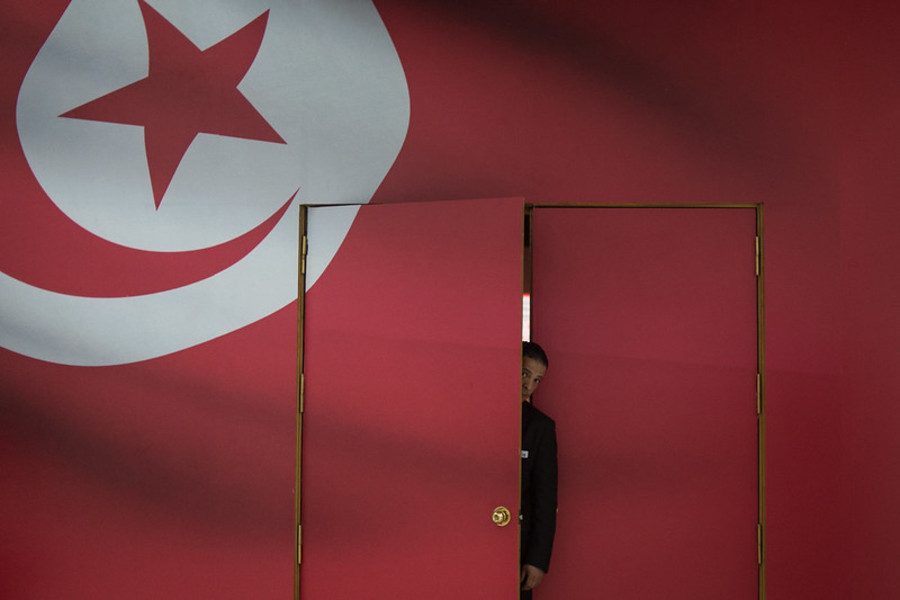Conferences and debates
Index / Activities / Conferences and debates / Tunisia and the reshuffling of its political forces
Tunisia and the reshuffling of its political forces
September 16, 20207:00 p.m.
MADRID
Casa Árabe Auditorium (at Calle Alcalá, 62).
7:00 p.m.
Free entry until the event’s capacity is reached.
In Spanish.
On Wednesday, September 16, Professor Miguel Hernando de Larramendi and researcher Sergio Altuna will be giving this conference in Madrid.
Miguel Hernando de Larramendi, a professor of Arab and Islamic Studies at the University of Castilla-La Mancha, and Sergio Altuna Galán, an associate researcher with the Real Instituto Elcano, will be introduced by Karim Hauser, Casa Árabe’s International Relations Coordinator, who will also be moderating the debate.
From 2011 to the beginning of its democratic process, political life in Tunisia has been neither peaceful nor calm. While true that it has been able to avoid disruptions and build consensus to avoid the chaos which has occurred in other “Arab Springs”, Tunisia went through a coalition government led by a prime minister from the Ennahda Islamist party until 2014, when the constitutional process ended, and different secular governments (some of a notably technocratic makeup) under the presidency of Beji Caid Essebsi up to 2019. The Tunisians have not seen any improvement in their living conditions, particularly in economic terms, and now, both secular society and Islamists are facing a new and complex democratic stage. This small North African country is always mentioned as an example which demonstrates that socio-political transformation is possible in the Arab world, but the fatigue existing after nine years of cohabitation amongst political forces is obvious. The most recent episode, in mid-July, was the resignation of Prime Minister Elies Fajfaj following a vote of no confidence against him. It has yet to be seen whether his successor will gain the confidence of a fragmented parliament or new legislative elections will have to be called. With the challenges posed by the economy and security, coupled with the effects of the Covid-19 pandemic, many fear a crisis which might jeopardise Tunisia’s stability.
Miguel Hernando de Larramendi is a professor of Arab and Islamic Studies at the University of Castilla-La Mancha and a professor in the PhD program in International Mediterranean Studies at the Universidad Autónoma de Madrid. He was a founder and the director of the Toledo School of Translators. His lines of research are based on political systems, as well as foreign relations between Spain and the countries in both North Africa and the Near East, as well as religious pluralism in Spain. His publications focus on the foreign policy of the Maghreb countries and their relations with Spain.
Sergio Altuna Galán is an associate researcher at the Real Instituto Elcano in the Violent Radicalization and Global Terrorism Program. He holds a bachelor’s degree in Translation and Interpretation from the University of Valladolid, a Master’s degree in Arabic Language, Literature and History from Tunis El Manar University, and a Master’s degree in Terrorism Studies from the International University of La Rioja. His lines of research focus on violent non-state role-players in the Maghreb and Sahel regions, and analysis of Salafist and Jihadist discourse and rhetoric.
From 2011 to the beginning of its democratic process, political life in Tunisia has been neither peaceful nor calm. While true that it has been able to avoid disruptions and build consensus to avoid the chaos which has occurred in other “Arab Springs”, Tunisia went through a coalition government led by a prime minister from the Ennahda Islamist party until 2014, when the constitutional process ended, and different secular governments (some of a notably technocratic makeup) under the presidency of Beji Caid Essebsi up to 2019. The Tunisians have not seen any improvement in their living conditions, particularly in economic terms, and now, both secular society and Islamists are facing a new and complex democratic stage. This small North African country is always mentioned as an example which demonstrates that socio-political transformation is possible in the Arab world, but the fatigue existing after nine years of cohabitation amongst political forces is obvious. The most recent episode, in mid-July, was the resignation of Prime Minister Elies Fajfaj following a vote of no confidence against him. It has yet to be seen whether his successor will gain the confidence of a fragmented parliament or new legislative elections will have to be called. With the challenges posed by the economy and security, coupled with the effects of the Covid-19 pandemic, many fear a crisis which might jeopardise Tunisia’s stability.
Miguel Hernando de Larramendi is a professor of Arab and Islamic Studies at the University of Castilla-La Mancha and a professor in the PhD program in International Mediterranean Studies at the Universidad Autónoma de Madrid. He was a founder and the director of the Toledo School of Translators. His lines of research are based on political systems, as well as foreign relations between Spain and the countries in both North Africa and the Near East, as well as religious pluralism in Spain. His publications focus on the foreign policy of the Maghreb countries and their relations with Spain.
Sergio Altuna Galán is an associate researcher at the Real Instituto Elcano in the Violent Radicalization and Global Terrorism Program. He holds a bachelor’s degree in Translation and Interpretation from the University of Valladolid, a Master’s degree in Arabic Language, Literature and History from Tunis El Manar University, and a Master’s degree in Terrorism Studies from the International University of La Rioja. His lines of research focus on violent non-state role-players in the Maghreb and Sahel regions, and analysis of Salafist and Jihadist discourse and rhetoric.

